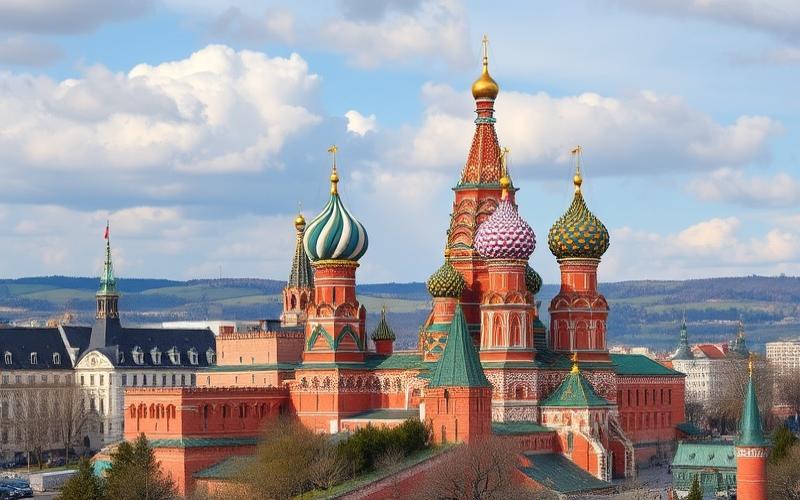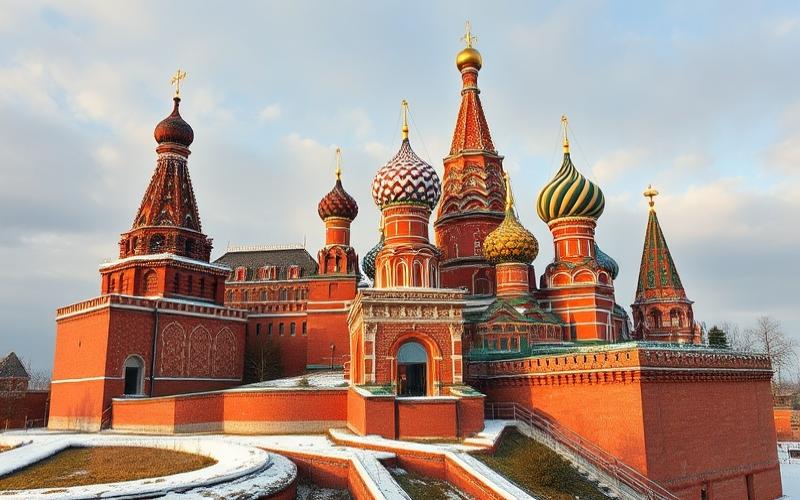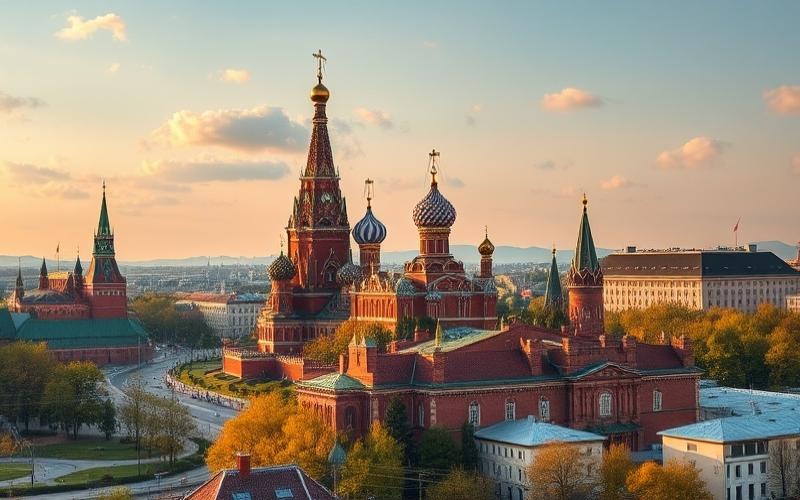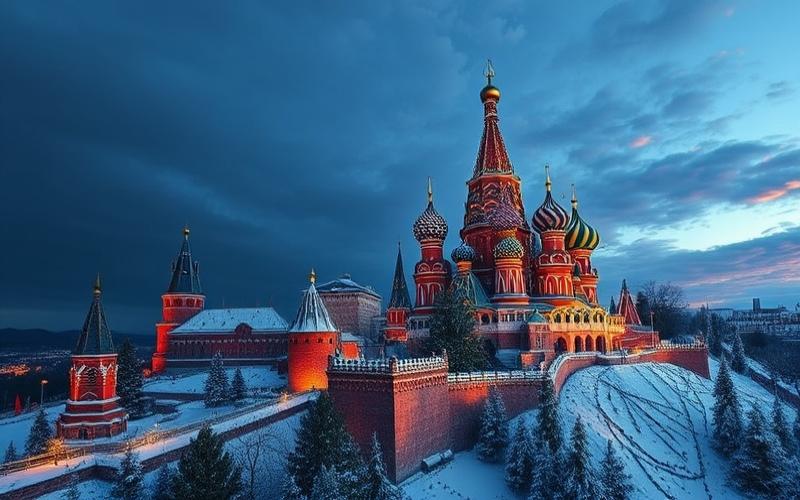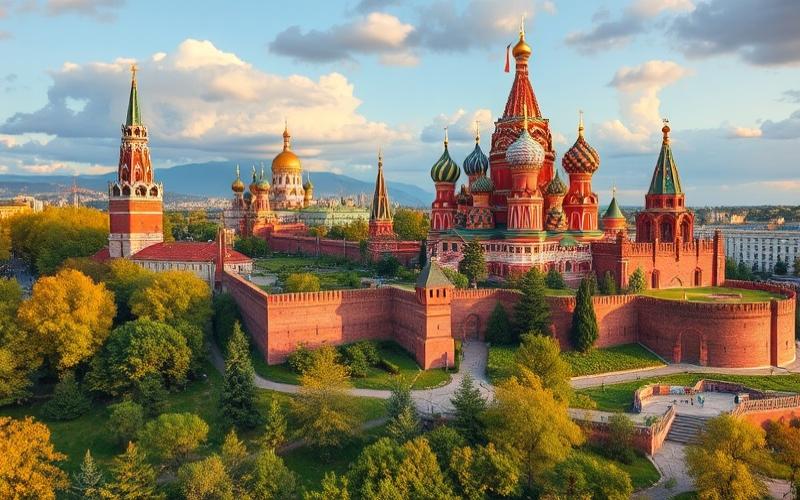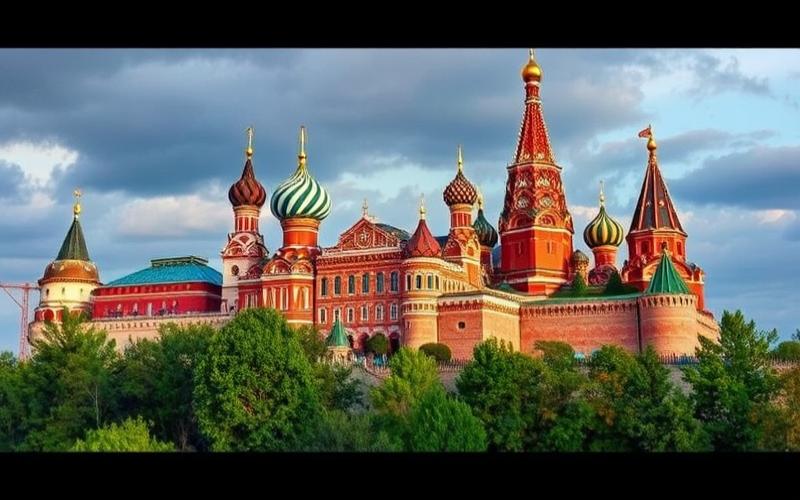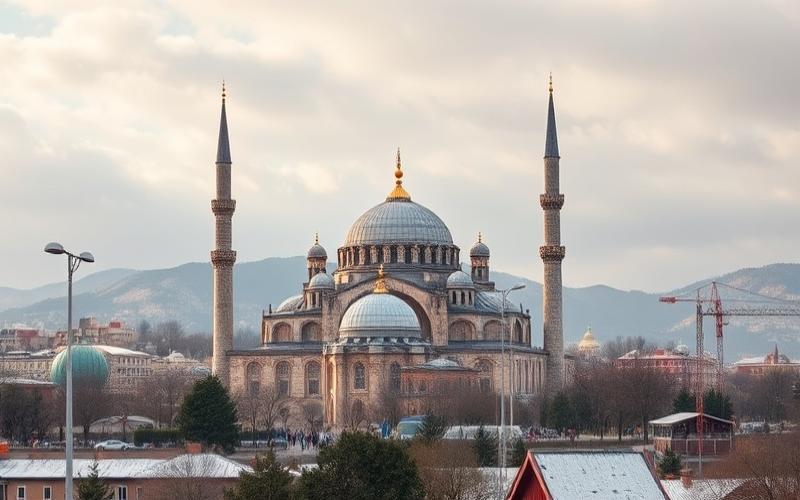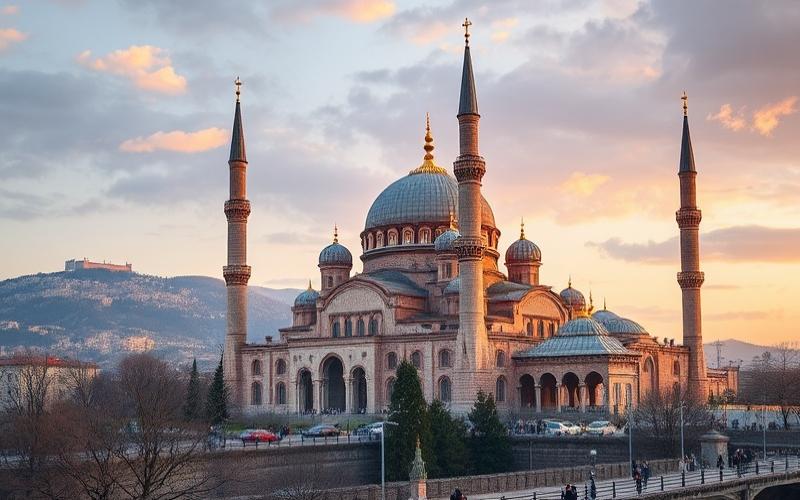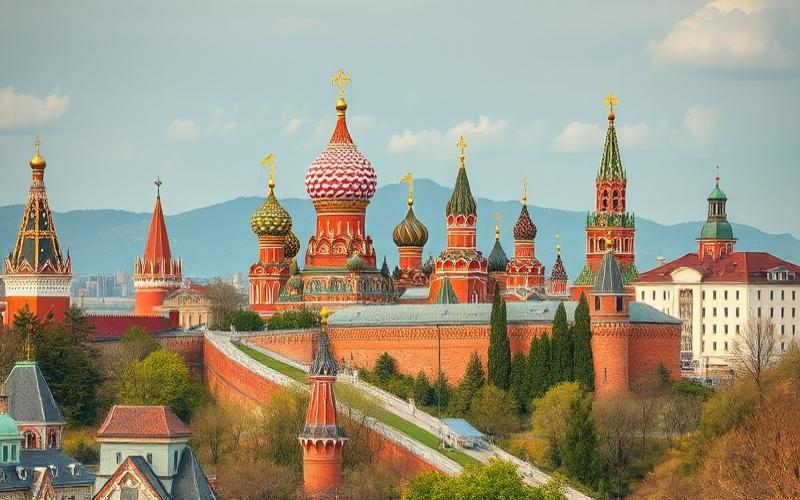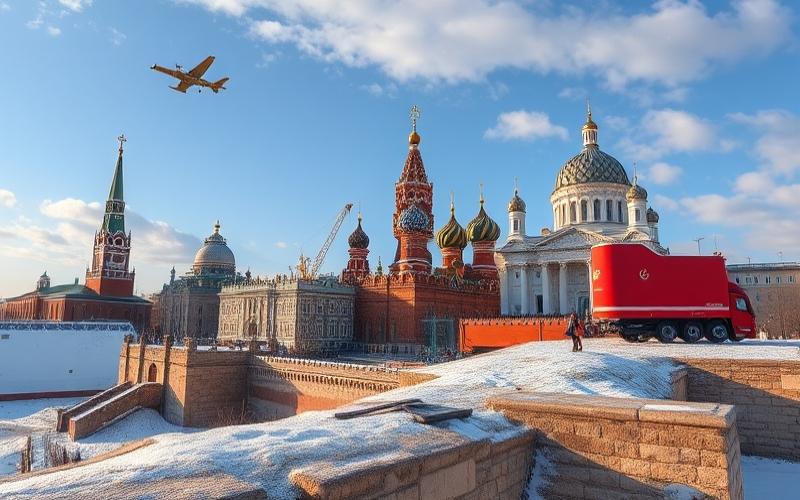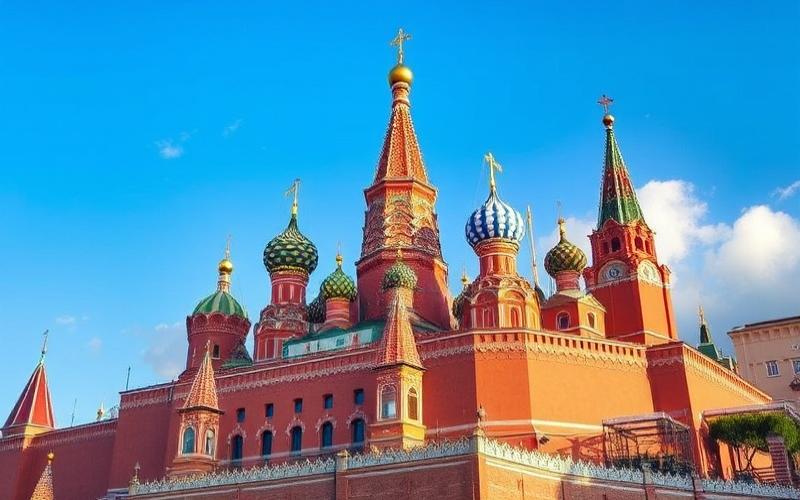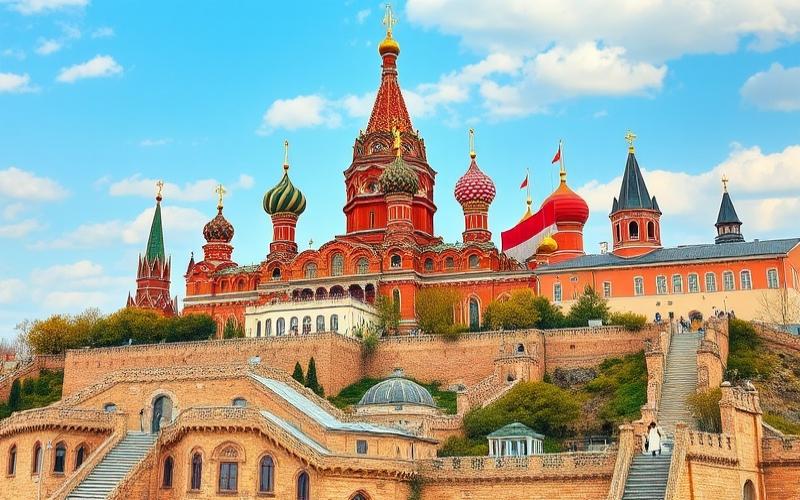
 Published on and written by Cyril Jarnias
Published on and written by Cyril Jarnias
In Russia, family law holds a central place in social organization, governing fundamental concepts such as adoption and divorce. These two aspects, seemingly opposite, share a significant influence on the daily lives of Russian citizens, shaping their family and personal trajectories.
While adoption offers the hope of a new home for parentless children, it also reflects the administrative and cultural complexities unique to the nation. Meanwhile, divorce, although often perceived as a rupture, also stands as a necessary process to ensure the well-being of the individuals involved.
Understanding the legislative frameworks and cultural challenges of these processes offers an enriching perspective on the evolution and dynamics of families in contemporary Russia.
Adoption Procedures in Russia for Expatriates
Legal Framework for Adoption in Russia
Adoption in Russia is governed by a set of specific legislative texts:
- Russian Family Code (notably Articles 121, 122, 123, 124, 127, 146 and 165)
- Federal Law No. 167 FZ, which reformed the Family Code
- Decree No. 725 of August 22, 2013, establishing rules for registration and monitoring of adopted children
- Franco-Russian Bilateral Treaty of November 18, 2011 (cooperation in adoption matters)
- Order No. 542 of May 1, 1996 on illnesses and disabilities excluding adoptability
Russia has not ratified the Hague Convention on Intercountry Adoption.
Requirements for Expatriates
Eligibility criteria for adoption:
| Criterion | Main Requirement |
|---|---|
| Marital Status | Only married heterosexual couples permitted |
| Age Difference | Minimum 16 years between adoptive parent(s) and child |
| Health | Absence of illnesses/disabilities listed in Order No. 542 |
| Criminal Record | No criminal history incompatible with minor protection |
| Financial Capacity | Required proof of stable situation ensuring family welfare |
Single individuals or homosexual couples cannot adopt.
Adoption Process Steps
- Preparation of administrative file (civil status, financial resources, medical certificates…)
- Official submission to competent Russian authorities via recognized agency
- Mandatory social and psychological evaluations conducted by accredited professionals
- Administrative approval then registration on national/regional adoption candidate list
- Assignment/selection of child by Russian authorities or organized visits to designated orphanage
- Final preparation of legal file presented before competent Russian court for legal validation
After favorable judgment:
- Official issuance of judgment – final adoption
- Consular and administrative procedures necessary for departure with child
Generally Observed Timelines
Timelines vary significantly depending on: region involved, individual case complexity.
Between each key step:
- File preparation/submission: several months
- Child assignment wait: variable, often 12 to 24+ months
- Local court procedure: approximately 2 to 6 months
Significant delays may occur during:
- Additional administrative or judicial verifications,
- Supplementary requests regarding social/psychological monitoring.
Post-Adoption Obligations for Expatriates
Summary list:
Mandatory submission to Russia of translated/apostilled post-adoption reports.
Frequency:
- At each adoption anniversary at months: 3rd, 6th, 12th, 24th, then 36th
- Then every two years until child reaches eighteen years old
Always keep proof of effective submission to Russia via recognized carrier.
Specific Restrictions for Expatriates
- Absolute prohibition for single individuals/homosexual adoptions even if permitted in their country;
- Potential existence (in some cases) of restrictions regarding permanent return or long-term establishment outside Russian territory immediately after adoption;
- Strict mandatory compliance with local migration regime under penalty of retroactive invalidation;
Organizations & Assistance for Expatriate Adopters
Main contacts & specialized providers:
- Accredited French agencies/international agencies recognized by Moscow,
- International Adoption Mission (France),
- Bilingual specialized lawyers in Russian law/international private law,
- Foreign consular services present in Federation,
Services offered:
- Administrative/legal support throughout process,
- Translation/legalization assistance for files,
- Logistical post-adoption monitoring.
Case Studies / Concrete Examples
Some frequently reported situations:
- French family having to repeat multiple psychological evaluations following local regulatory changes; procedure extended >30 months before obtaining final favorable decision.
- Franco-Russian couple benefiting from partial acceleration thanks to dual nationality but nevertheless facing increased requirements during transmission of post-adoption reports – initially refused due to non-compliant translations – requiring intervention from specialized local lawyer.
- Several testimonies highlight crucial importance of using accredited intermediaries to avoid complete procedure invalidation during subsequent control by Russian administrations.
Simplified Visual Summary – Typical Process
| Step | Indicative Duration |
|---|---|
| Preparation/file | Several weeks/months |
| Social/psychological evaluation | Variable |
| Assignment wait | Often >12 months |
| Court procedure | Approximately two to six months |
Practical precaution list:
- Systematic verification of chosen agency accreditation
- Anticipate official apostilled translations from procedure start
- Surround yourself with specialized Franco-Russian legal advice
Good to Know:
Expatriates must obtain government commission approval to begin adoption and comply with strict requirements, such as completing psychological and social evaluations. Timelines may vary, but the complete process generally takes between 12 and 24 months, with mandatory post-adoption follow-ups until three years after adoption.
Understanding Divorce in Russia for Expatriates
Key Elements of Russian Legal System Regarding Divorce for Expatriates
Two types of divorce exist:
- Administrative divorce (amicable) via ZAGS office, possible only if spouses agree and have no minor children. Quick procedure (approximately 1 month) with joint submission of required documents.
- Judicial divorce (contested) required if there are minor children, disagreement about separation or property division. Can last between 2 and 6 months.
Generally required documents:
- Marriage certificate
- Spouses’ passports/identification
- Proof of residence
- Written agreement on custody, alimony and property division (if applicable)
In case of physical absence, a lawyer can represent either spouse by proxy.
Required Timelines
| Procedure Type | Approximate Duration | Reflection Period |
|---|---|---|
| Administrative | Approximately one month | Not applicable |
| Judicial | Between two and six months | Up to three months* |
*Additional time may be granted by court before judgment becomes final.
Rights and Obligations of Foreign Nationals
- A foreigner married to a Russian citizen can file for divorce in Russia even if residing outside the country.
- Jurisdiction is mainly determined by defendant’s residence; however, Russian nationality often allows expatriate Russian citizens to initiate proceedings before Russian court.
- Russian decisions sometimes require recognition in concerned foreign country to produce local effects (opposability procedure).
Property Division & Child Custody
Property acquired during marriage is generally divided equally, regardless of location.
Property from before marriage or received as inheritance/gift remains personal if origin is proven.
Main points regarding children:
- Custody decided according to child’s best interests; possibility for each parent to obtain custody or visitation rights depending on specific circumstances.
- Alimony must be set either by mutual agreement or judicially.
Practical Tips to Avoid Complications
Ensure gathering all original documents accompanied if necessary by certified translations.
Contact as soon as possible a lawyer specialized in international family law to:
- Be accompanied during filing,
- Obtain advice on international recognition of judgment,
- Guarantee rights in each involved jurisdiction.
Points to monitor:
- Verify if your country automatically recognizes Russian decision or requires specific validation,
- Anticipate any questions related to cross-border movement of children after divorce,
- Plan how bank accounts/joint accounts located outside Russia will be managed.
Differences Between Amicable and Contested Divorce & National Influence
| Criterion | Amicable Divorce | Contested Divorce |
|---|---|---|
| Prior Agreement | Required | Not required |
| Mandatory Presence | Often necessary | Possible representation |
| Timelines | Shorter | Longer |
| Judicial Intervention? | Minimal | Complete decision |
Nationality influences:
- Access to Russian courts (citizenship required in some cases),
- Need or not to subsequently validate decision in home country,
- Cross-border treatment of assets and/or child(ren).
Important: Always consult local specialist before any procedure to ensure your rights are preserved both in Russia and abroad!
Good to Know:
Expatriates in Russia must provide proof of residence and marriage certificate to initiate divorce; it is highly recommended to consult a specialized lawyer to navigate between amicable and contested divorce, which influence property division and child custody, especially if spouses are of different nationalities.
Family Law in Russia: Adoption and Divorce Explained
Adoption in Russia
The legal framework for adoption in Russia primarily relies on the Family Code (Articles 121 to 127), Federal Law No. 167 FZ, Decree No. 725 of August 22, 2013 and various bilateral treaties, notably the Franco-Russian treaty of November 18, 2011. International adoption is strictly regulated, with specific requirements depending on nationality and status of adopters.
Main Laws Governing Adoption:
| Law/Regulation | Effective Date | Main Purpose |
|---|---|---|
| Family Code | 1995 | General adoption principles |
| Federal Law No. 167 FZ | 2013 | Family Code reform |
| Decree No. 725 | 2013 | Monitoring and registration rules |
| Franco-Russian adoption treaty | 2013 | Cooperation in adoption matters |
| Federal Law No. 272-FZ | 2013 | USA adoption ban |
Adoption Conditions
- Russian nationals:
- Only married heterosexual couples.
- Minimum age difference of 16 years with child.
- Exclusion of persons with certain illnesses or disabilities.
- Foreigners:
- Only married heterosexual couples can adopt.
- Since 2013, adoption prohibited for US citizens.
- Since 2022, suspension of international adoption for French residents.
- Prohibition for single individuals or same-sex couples, or from countries having legalized same-sex marriage.
Adoption Procedure (main steps):
- File submission to competent authorities.
- Social and psychological evaluation of candidates.
- Approval by Russian authorities.
- Matching with child declared adoptable (often aged 18 months to 14 years, sometimes with medical conditions).
- Adoption judgment before Russian court.
- Registration of child at Russian consulate in country of residence within two months of arrival.
- Obligation of regular monitoring reports until child reaches majority.
Usual timelines: 1 to 2 years, but significantly extended due to recent restrictions and suspensions.
Rights and Obligations of Adoptive Parents and Adopted Children
Adoption creates parent-child relationship equivalent to biological one.
Adoptive parents exercise parental authority and assume all legal, educational and financial obligations towards child.
Adopted child acquires same rights as biological children, including inheritance.
Post-adoption monitoring obligation: regular reports to provide to Russian authorities until child reaches majority.
Recent Legislative Developments
- Prohibition of adoption by US citizens (Law No. 272-FZ of 2013).
- 2013 law prohibiting international adoption for countries having legalized same-sex marriage or adoption by single individuals.
- Complete suspension of international adoptions for French residents since January 2023.
- Strengthening of post-adoption monitoring requirements.
Recent Statistics
| Year | Number of Russia-France International Adoptions |
|---|---|
| 2023 | 1 |
| 2022 | 2 |
Divorce in Russia
Russian law recognizes several types of divorce, each with specific procedures and consequences.
Types of Divorce
| Divorce Type | Main Characteristics |
|---|---|
| Administrative divorce | Possible without minor children or dispute, before civil registry officer (ZAGS) |
| Judicial divorce | Mandatory if minor children present or disagreement about consequences (property, custody, etc.), before court |
Divorce Procedure
- Administrative divorce:
- Joint application submission to ZAGS.
- Legal reflection period: 1 month.
- Moderate cost (administrative fees).
- Judicial divorce:
- Petition filing before district court.
- Hearing(s), possibility of mediation.
- Average duration: 2 to 6 months depending on complexity.
- Court fees proportional to value of disputed property.
Treatment of Divorce Consequences
- Child custody: court prioritizes child’s best interests, with tendency to grant custody to mother, except in special circumstances.
- Alimony: generally set at 25% of net income for one child, 33% for two, 50% for three or more.
- Property division: in principle, equal division (50/50) of property acquired during marriage, unless contrary agreement or exceptional circumstances.
Frequently Cited Reasons and Societal Trends
- Most common reasons: incompatibility, domestic violence, economic problems, alcoholism.
- High divorce rate in Russia: around 4 divorces per 1,000 inhabitants in recent years, one of highest in Europe.
- Evolution: increased use of administrative divorce, particularly in large cities.
Recent Legal Changes
- Strengthening protection of children’s rights in divorce context.
- Simplification of certain administrative procedures, particularly for childless divorces.
- Ongoing discussions about mandatory mediation before court appearance, but not yet generalized.
Recent Example
In 2023, approximately 520,000 divorces were registered in Russia, with increasing proportion of administrative divorces in large urban areas.
To remember: Adoption in Russia is now very restrictive for foreigners, subject to rigorous legal framework and recent suspensions. Divorce, meanwhile, remains accessible and frequent, with procedures adapted to presence of minor children or property to divide.
Good to Know:
Russian adoption laws impose strict conditions on foreigners, often more rigorous than for Russian citizens, with timelines potentially reaching two years; for divorce, procedure can be simplified with mutual agreement, but becomes more complex if children or property are involved, with court then playing crucial role in settlement. Recent legislative reforms have introduced adjustments regarding shared custody and recognition of international adoptions, reflecting new societal trends in Russia.
Disclaimer: The information provided on this website is for informational purposes only and does not constitute financial, legal, or professional advice. We encourage you to consult qualified experts before making any investment, real estate, or expatriation decisions. Although we strive to maintain up-to-date and accurate information, we do not guarantee the completeness, accuracy, or timeliness of the proposed content. As investment and expatriation involve risks, we disclaim any liability for potential losses or damages arising from the use of this site. Your use of this site confirms your acceptance of these terms and your understanding of the associated risks.

